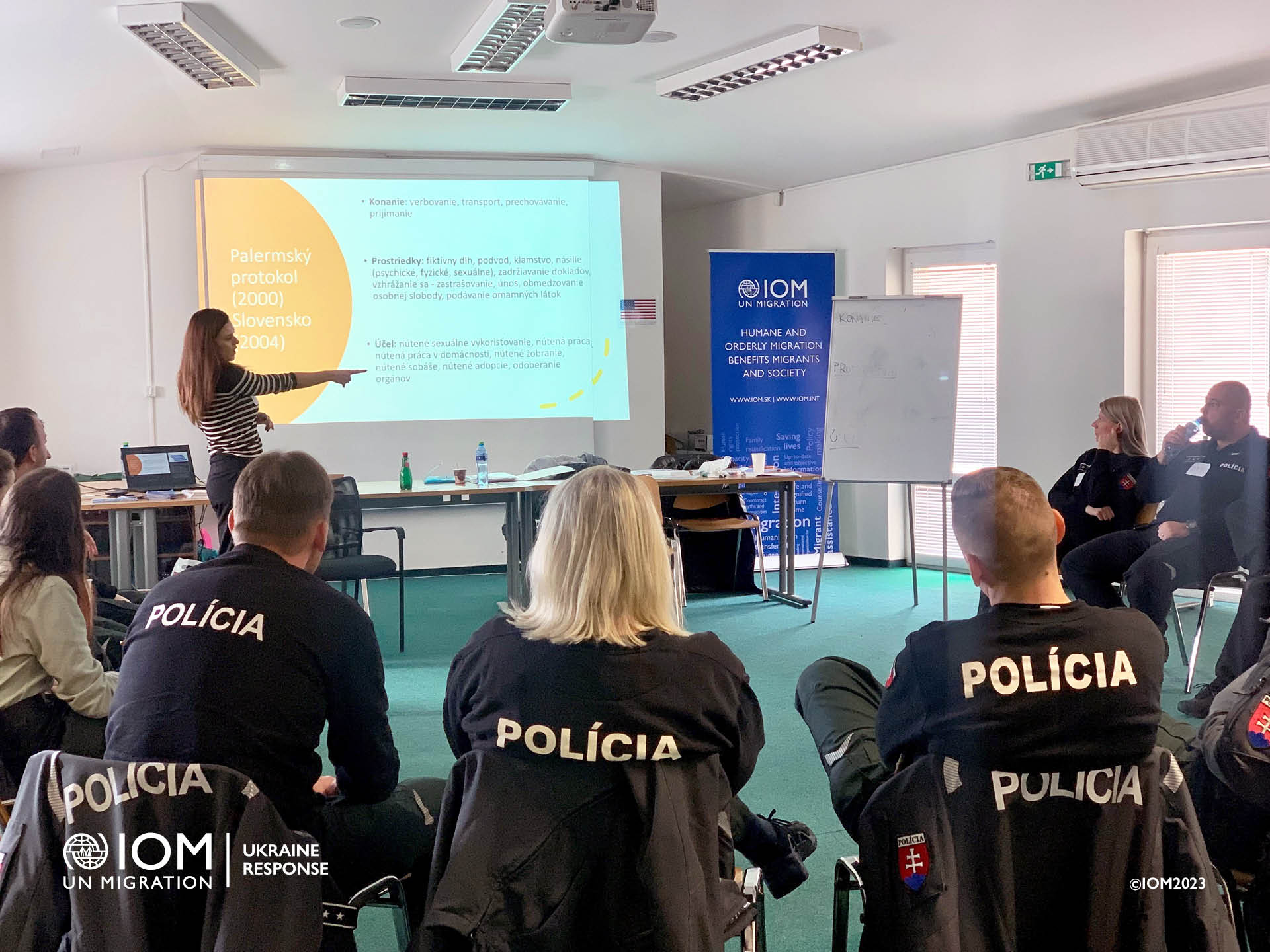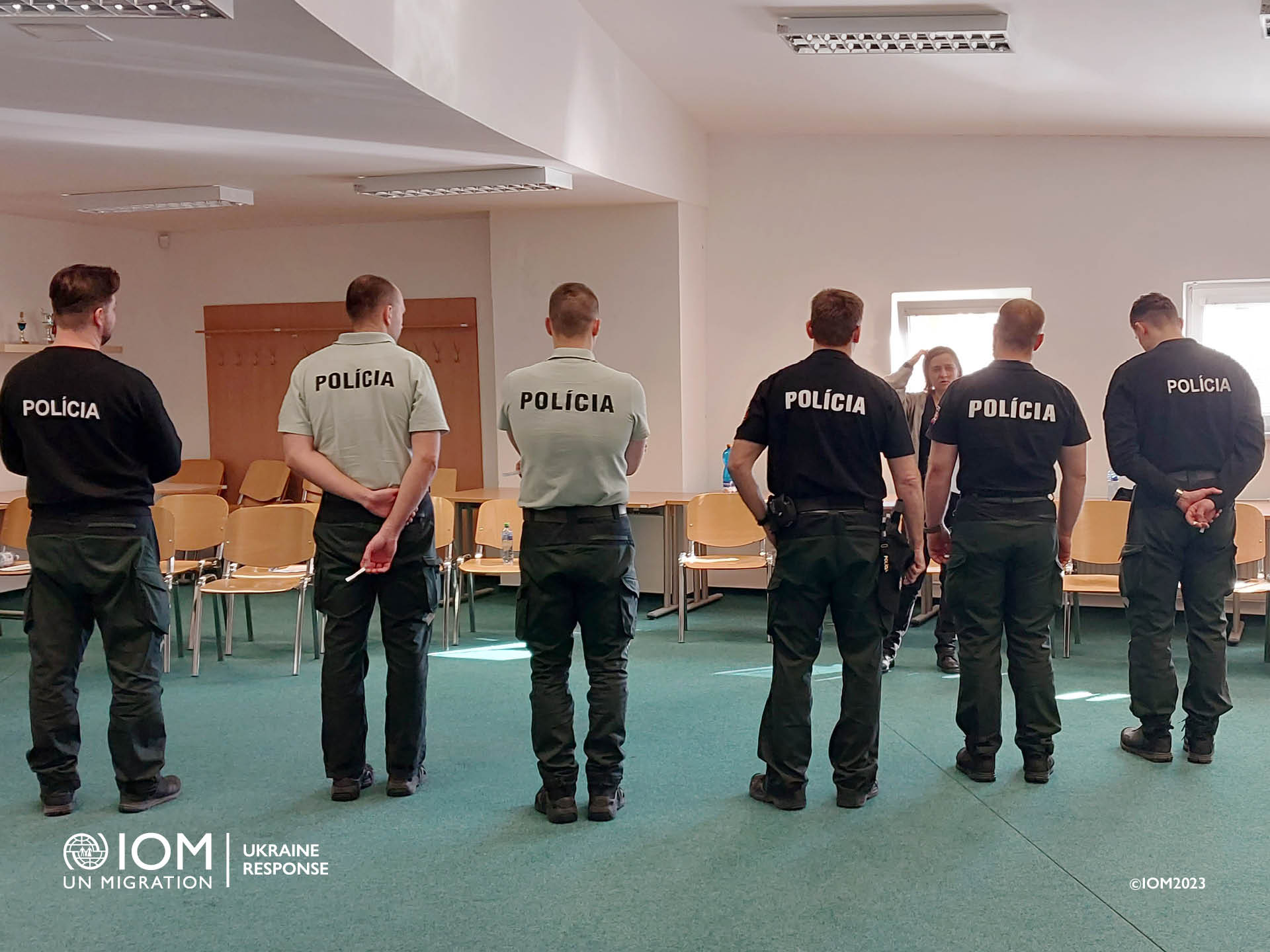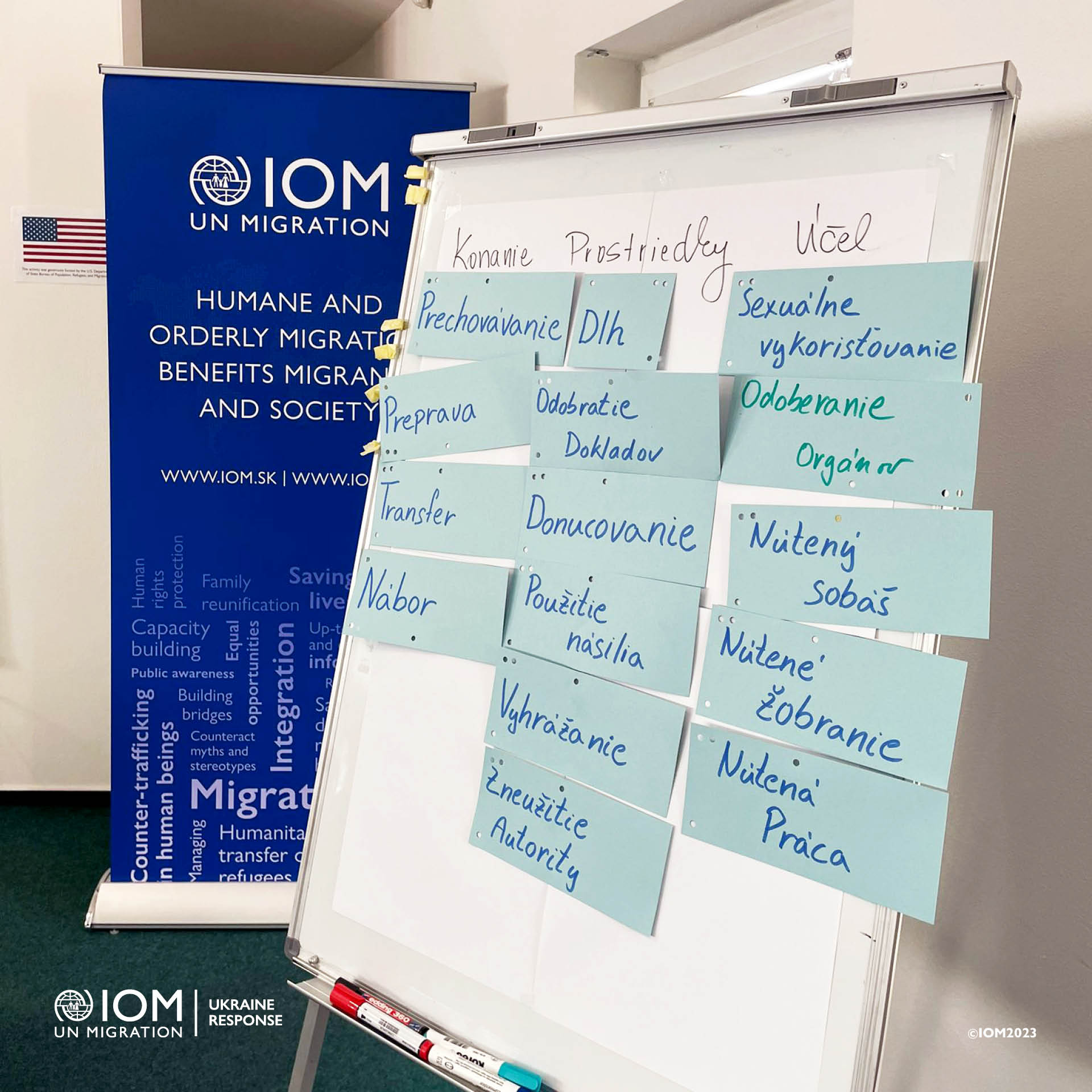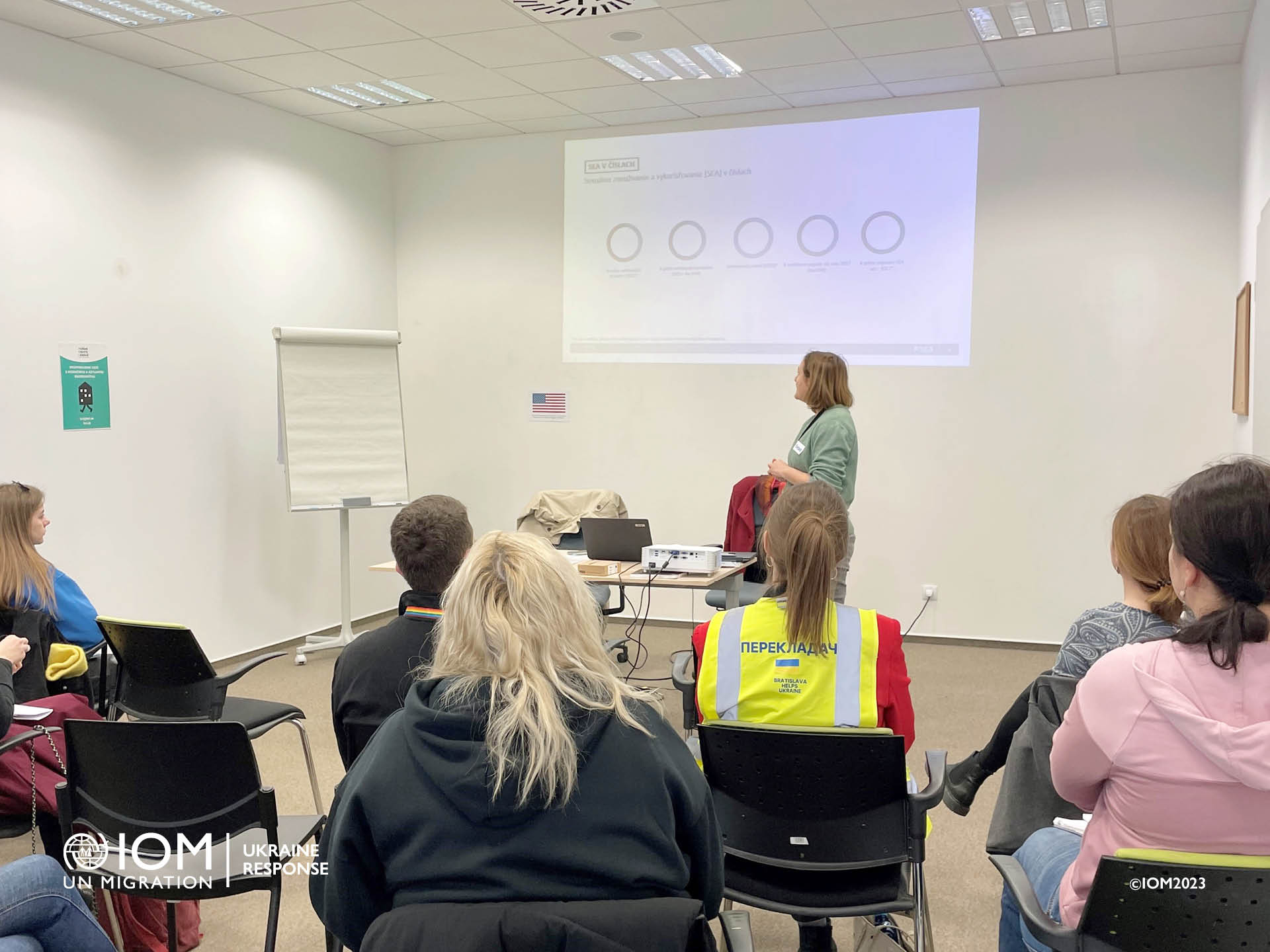As people continue to cross the Slovakia–Ukraine border, prevention and detection of human trafficking are crucial when interacting with those coming from foreign countries into a new and unknown territory.

IOM team provided police officers with necessary information on the different ways that survivors of human trafficking might react and communicate. Photo © International Organization for Migration (IOM) 2023.
In the IOM, the importance of training in counter-trafficking is key both for the staff members of our organisation and for people working with possible survivors of human trafficking. Recently, the IOM’s Capacity Building team travelled to Sobrance – a town in the eastern part of Slovakia, close to the border crossings with Ukraine – where for five days they delivered training sessions on Counter Trafficking and Sexual Exploitation and Abuse for more than 80 police officers from the Bureau of Border and Foreign Police.
Thanks to the intensive and interactive training sessions, officers had a chance to get familiar with the most common myths about human trafficking and recognise risky situations that may occur at borders. Most importantly, as police officers are in direct contact with people coming from Ukraine, specific red flags – signs that a person might be a survivor of trafficking – were presented and discussed. Our team provided necessary information on the different ways that survivors of human trafficking might react and communicate and how to approach them concerning their trauma.

Training sessions on Counter Trafficking and Sexual Exploitation and Abuse for more than 80 police officers from the Bureau of Border and Foreign Police in Sobrance. Photo © International Organization for Migration (IOM) 2023.
The second part was dedicated to the topic of the Prevention of Sexual Exploitation and Abuse (PSEA). This topic is still considered taboo in Slovakia, which is exactly why these training sessions are essential. Members of the Bureau of Border and Foreign Police appreciated the opportunity to gain a better understanding of the difference between sexual exploitation, abuse and harassment. They learned about the importance of not underestimating a situation, staying vigilant and reporting SEA allegations.

A board illustrating the basic features of counter-trafficking. Photo © International Organization for Migration (IOM) 2023.
In addition to the training of police forces, the team also conducted two PSEA training sessions for IOM employees, one for members of NGOs who are in direct contact with people receiving aid and one for IOM’s partners working in facility management in Gabcikovo. Altogether, 39 people undertook these four training sessions, during which they had a chance to learn how to define, recognise and distinguish sexual exploitation, sexual abuse and sexual harassment, as well as what kind of behaviour falls under each of these defined categories. As people working directly with clients, they were informed about how to handle the disclosure of possible cases of sexual exploitation and abuse.

During PSEA trainings participants have chance to learn how to define, recognise and distinguish sexual exploitation, sexual abuse and sexual harassment. Photo © International Organization for Migration (IOM) 2023.
Since the start of the war in Ukraine, the IOM has provided training on the topic of the prevention of human trafficking and the prevention of sexual exploitation and abuse together with almost 1,000 people.
Read more about our activities on CT and PSEA:
IOM staff members are prepared to assist people when human trafficking is suspected
IOM trained first professionals from Labour Inspectorates in counter-trafficking
With the support of:


U.S. Department of State Bureau of Population, Refugees, and Migration.
 Slovenčina
Slovenčina
 Українська (Україна)
Українська (Україна)
 English
English
